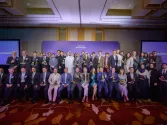It stands out as a beacon of innovation and customer-centricity.
In the ever-evolving realm of health and beauty retail, Watsons Singapore has not only weathered the storms of market challenges but has also emerged as a beacon of innovation and excellence over the past 24 months. It has attained outstanding achievements, innovative strategies, and remarkable performance.
The company continues to lead and has maintained an impressive Brand Equity Index of 4.6 despite turbulent market conditions. Its online platform has also witnessed exponential growth through offering enticing promotions, competitive delivery costs, and a seamless shopping experience.
It has experienced substantial growth across all categories, consistently outperforming the market in terms of category value growth and market share expansion. This is exemplified by its robust presence on platforms such as Instagram, TikTok, and Facebook, achieving remarkable increases in followers, reach, and engagement, and establishing itself as a trendsetter in the digital space.
Watsons Singapore has also highlighted several unique initiatives in the past year, which includes the ShopSavvy campaign for Watsons' own label products. This has boosted sales volume and attracted new own label users. At the same time, its innovative omnichannel initiatives have seamlessly integrated online and offline experiences, leading to a remarkable growth in online sales, app downloads, and order volumes.
Meanwhile, it has organised an internal river clean-up kayaking event in collaboration with the World Wildlife Foundation for its staff. Externally, it has engaged its customers through a range of initiatives including the Earth Hour programme, sustainable choices campaign, and the expansion of refill stations and plastic recycling kiosks to additional stores.
However, these achievements did not come without its fair share of challenges.
With the COVID-19 pandemic’s impacts still presenting challenges to the retail industry, Watsons Singapore continues to implement comprehensive safety protocols, accelerate its e-commerce initiatives, and introduce innovative solutions such as express delivery and virtual AI tools. It has also expanded its footprint by opening seven new stores in 2023 despite facing market saturation and escalating property costs.
The Singaporean workforce are also faced with increased expectations for development, competitive pay, and growth opportunities. To address these expectations, Watsons' Human Resource team prioritised initiatives to enhance employee satisfaction and well-being. It has implemented policies promoting work-life balance, performance-based rewards, tailored development plans, and diversity initiatives.
Meanwhile, the company has also been marred with supply chain disruptions amidst market challenges. Watsons Singapore has optimised its supply chain, diversifying sourcing strategies, and leveraging technology to accurately forecast demand.
Watsons Singapore’s initiatives would not have borne fruit if not for the dynamism of its Mobile App, which has served as a catalyst for driving shoppers into stores whilst seamlessly integrating online and offline experiences. The nature of the app also caters to customers’ evolving needs and is responsive to market dynamics.
Watsons Mobile App has incorporated groundbreaking innovation in merging augmented reality (AR) technology with beauty retail, which allows customers to virtually try on various makeup and provides them with a highly immersive and personalised shopping experience.
The app has also been upgraded further with a brand new skin analysis AI tool, “Skinfie Lab,” which provides customers with highly personalised skincare product recommendations based on their selfies.
Members can also earn and redeem points through the app’s QR feature, ensuring that they never miss out on exclusive deals. They can also view their exclusive coupons, vouchers, promo codes within the tool.
Watsons Mobile App also provides a smooth and intuitive online shopping experience with features like personalised recommendations and easy checkout. Customers can also track orders and view their purchase history effortlessly. The search function within the app can be via keyword text, product photo, as well as simply scanning the product barcode.
Customers can easily identify products that are sustainable through the app, especially those that are categorised under Clean Beauty, Refill, Better Ingredients and Better Packaging. The system features specific UDA tagging to each of these categories and the icon will appear in corresponding products.
From a business perspective, the app has had a profound impact on Watsons' sales performance, with 75% of own platform sales transacted via mobile, demonstrating its effectiveness in driving revenue growth. Additionally, the app's ability to provide personalised recommendations and promotions based on customer preferences has led to improved customer satisfaction and loyalty.
Watsons Singapore's remarkable milestones, innovative strategies, and outstanding performance over the past 24 months have solidified its position as a trailblazer in the health and beauty retail sector. By overcoming challenges with resilience, driving growth with innovation, and fostering customer and employee loyalty, Watsons has set industry benchmarks and redefined excellence.
This major feat has been acknowledged by the coveted Retail Asia Awards 2024, with the company bagging the Health & Beauty Retailer of the Year - Singapore win, and the Watsons Mobile App clinching the Retail App of the Year - Singapore category.
The prestigious event honours companies that have recently launched innovative retail projects or initiatives, as well as industry leaders that have propelled their respective brands to maintain a competitive edge.
The Retail Asia Awards is presented by Retail Asia Magazine. To view the full list of winners, click here. If you want to join the 2025 awards programme and be acclaimed for your company's exceptional products or initiatives in the Retail industry, please contact Jane Patiag at [email protected].

 Advertise
Advertise















Commentary
Packaging the future: Why Asia’s F&B sector must treat sustainability as strategy